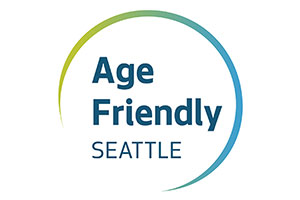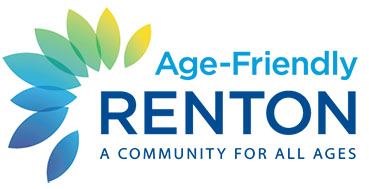Age-Friendly Communities
Age Friendly Communities in King County
As our region’s population ages, we are committed to helping communities become more age-friendly. The World Health Organization has established a set of recommended issues for cities to address, and AARP is helping advance these “8 Domains of Livability” across the U.S. Aging and Disability Services is proud that both Seattle and Renton have made formal commitments to become Age-Friendly Cities, and we are happy to provide information and guidance to any other community in King County that is interested in joining this movement.
Age Friendly Seattle
 The City of Seattle joined the AARP Network of Age-Friendly States and Communities in July 2016, publicly announcing this commitment in March 2017 with a Mayor/Council resolution. Age Friendly Seattle is now implementing its second five-year strategic framework, available on their Strategic Plans and Annual Reports webpage. For more information, e-mail agefriendly@seattle.gov.
The City of Seattle joined the AARP Network of Age-Friendly States and Communities in July 2016, publicly announcing this commitment in March 2017 with a Mayor/Council resolution. Age Friendly Seattle is now implementing its second five-year strategic framework, available on their Strategic Plans and Annual Reports webpage. For more information, e-mail agefriendly@seattle.gov.
Age-Friendly Renton
 The City of Renton joined the AARP Network of Age-Friendly States and Communities in June 2020. Age Friendly Renton’s initial action plan focuses on health and safety, communication and information, housing, and transportation. For more information, e-mail recreation@rentonwa.gov.
The City of Renton joined the AARP Network of Age-Friendly States and Communities in June 2020. Age Friendly Renton’s initial action plan focuses on health and safety, communication and information, housing, and transportation. For more information, e-mail recreation@rentonwa.gov.
For free, confidential access to aging network services in Seattle-King County, contact Community Living Connections.
![Aging & Disability Services for Seattle & King County [logo]](https://www.agingkingcounty.org/wp-content/themes/sads/images/seattle-ads-logo.png)
